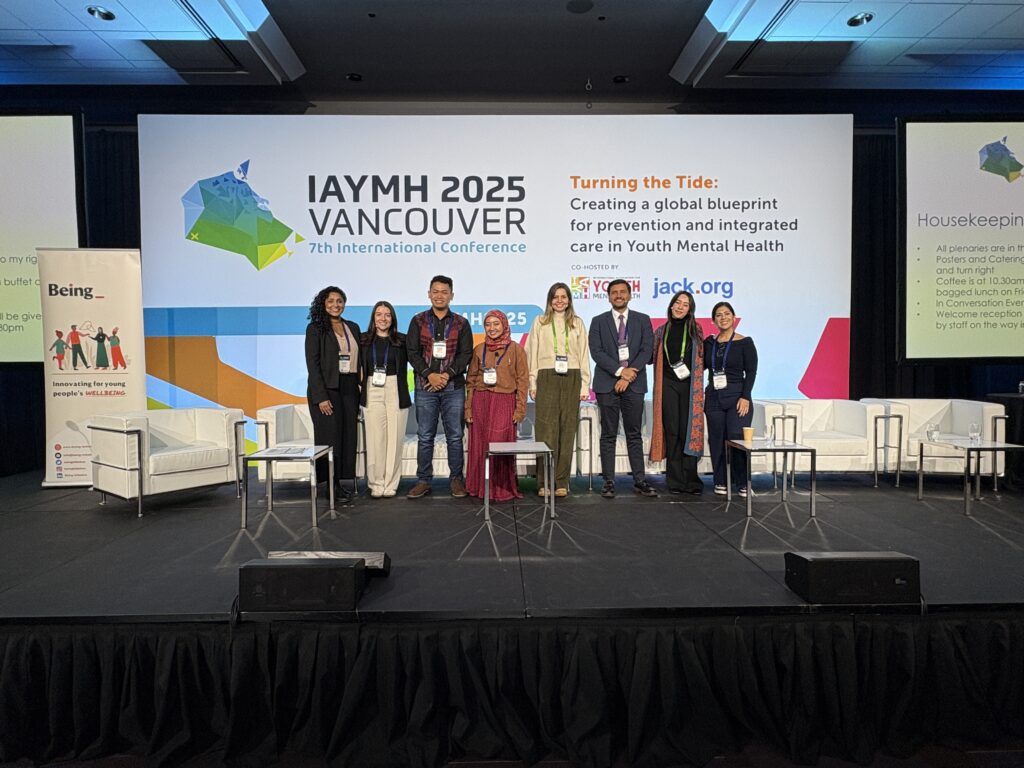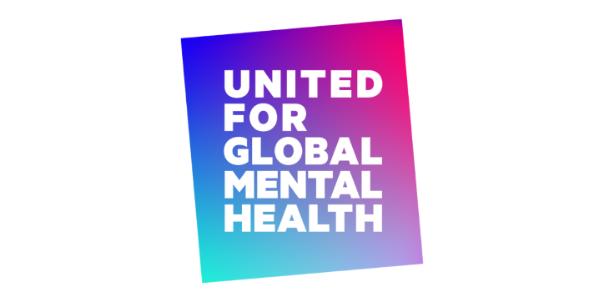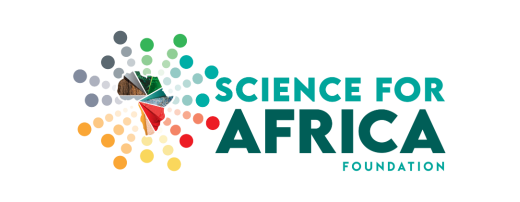Mental health ecosystems, which encompass both formal systems (like policies) and informal relationships (such as community interactions), play a crucial role in supporting population wellbeing.
At the 7th International Association for Youth Mental Health Conference last month in Vancouver, Canada, researchers from Being’s landscape analysis and consultations nationales in Colombia, Ecuador, and Indonesia joined Sireesha Bobbili et Erica Zissis from Grands Défis Canada at the “Shifting Power for Ecosystem Transformation” symposium. They shared key lessons on shifting power and how to meaningfully include youth in mental health research, based on their experiences during local landscape analyses.

Key Lessons on Shifting Power and Meaningful Youth Engagement from Global Researchers:
- Creative recruitment strategies: Recruiting diverse youth is vital. Débora L. Shambo-Rodríguez from Pontificia Universidad Javeriana in Colombia highlighted how they recruited youth beyond those already involved in mental health spaces and trained them in psychological first aid to empower them for research participation. Alejandra Espinoza from Junta de Beneficiencia de Guayaquil in Ecuador discussed the power of recruitment through social media and partnering with local youth organizations to reach a wider youth audience and build credibility among youth. Additionally, Jimmy Martin from Junta de Beneficienca de Guayaquil, Ecuador, and Amirah Wahdi from Université Gadjah Mada in Indonesia emphasized the importance of involving parents to ensure consent before engaging with minors and understanding of the interventions to help reduce stigma among parents to allow for greater youth participation.
- Creating safe spaces for youth voices: Youth must feel heard and respected throughout the research process. Laura Ospina-Pinillos et Débora L. Shambo-Rodríguez from Pontificia Universidad Javeriana in Colombia stressed that to truly empower youth voices in research, researchers must take a curiosity-driven standpoint and genuinely believe in the power of youth contributions. It’s necessary to express this verbally and explicitly in recruitment and how researchers design their methodology. As Jimmy Martin suggested, setting clear expectations and rules fosters a safe space where youth can engage openly. Thoughtful inclusion of strategies like icebreakers and interactive activities can also help build trust and rapport.
- Considering cultural sensitivities: Understanding cultural contexts and regional challenges is crucial. Prayoga Aditama et Amirah Wahdi from Université Gadjah Mada, Indonesia, emphasized that cultural sensitivities and safeguarding measures must be considered. They shared an example from Indonesia, where it’s difficult for youth to be open in front of people in positions of power. To address this, they developed a safe space by dividing participants by age, so youth would feel comfortable sharing among their peers.
- Positive impact of youth engagement on youth and on researchers: It was inspiring to hear from panellists. Prayoga spoke about his experience as a youth, being afraid to speak up, and how his engagement in these projects changed that perspective. Jimmy shared a story about his student who participated in the project and is now pursuing his master’s in research, all because of the positive impact the project had on him. Alejandra highlighted the positive impact of giving youth the space to engage, both professionally as researchers and in terms of the precedent they’re setting in Ecuador.






